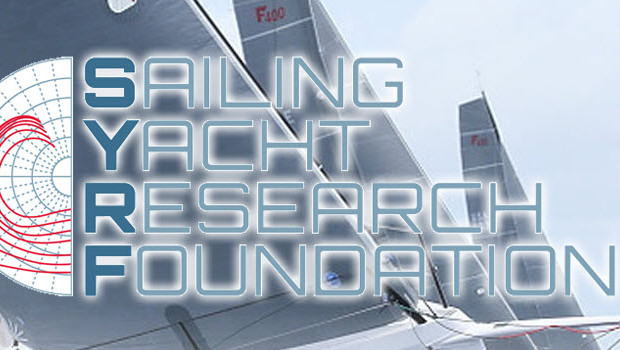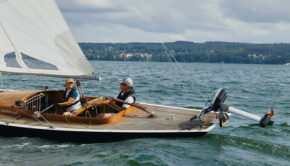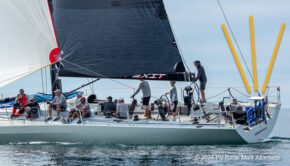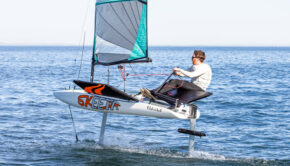Foundation seeks to fill development void
Published on November 18th, 2014
The Sailing Yacht Research Foundation (SYRF) is a unique entity in the world of sailing. It’s not a yacht club, not an agency that makes rules or administers the sport, not a university that has students and a research agenda, nor a collection of yacht designers looking for an edge.
But it is just a little of all of these, with a mission to help improve the sport through grants and funding the activities that lead to faster, safer and more exciting boats to race.
In 2014 SYRF has been successful in this mission at supporting new and existing initiatives in several important fields:
* The continued development of the HPR rating system for high performance offshore-capable boats that compete at the cutting edge of design and technology. HPR class racing was a feature attraction at 10 events throughout the US this year, with participation for boats ranging from Farr 280’s to TP 52’s. An HPR Survey was also produced to further refine the HPR design typeforms, and a new ISAF international class will be formed soon.
* Establishing the world’s first publicly-accessible Online Research Library of published materials related to sailing performance, which will be presented at the World Yacht Racing Forum next month.
* Completed the second phase of the Wide Light Boat study on the hydrodynamic qualities of modern race boats. This work will be used to validate the CFD work reported in June and help characterize the predicted performance of modern planing hull shapes.
* SYRF actively seeks providing support to worthy studies that will contribute to the science of sailing, and as such may support an analysis program with the Offshore Racing Congress’s International Technical Committee on the results of an aerodynamic study on asymmetric downwind sails conducted at the wind tunnel facility at the Milan Polytechnic University, as well as exploring other research initiatives such as wave motion studies.
Under the direction of SYRF Technical Director Myles Cornwell and the members of the Advisory Board of SYRF, the results of these and other supported research projects will be further analyzed and published in scholarly journals, presented at leading international symposiums, as well as posted on the SYRF website for all to see.
This transparency is important so that everyone in the field – students, designers, researchers, and interested sailors – can keep abreast of the latest science supported by SYRF.
Why is this important? For decades the America’s Cup has provided important trickle-down benefits to the rest of sailing. Numerous innovations in hull and appendage design, advances in spar and sail technology and the boat building craft itself all benefited from an infusion of capital every few years into defining and re-defining the cutting edge in design and technology. The marine industry as well as sailors themselves all benefited from these innovations that helped improve the performance of all racing yachts.
But in this era of America’s Cup yachts being raced in multihulls using winged foil technology, there is much less relevance to the boats that most sailors enjoy to race, so development opportunities are not as common as they once were.
SYRF was launched to help fill this void by funding the research programs that create new insights into the behavior of offshore sailing yachts. This added knowledge is then used to improve not only design trends in the game but the handicap systems that create equal playing fields among dissimilar yachts.
Generous contributions have helped SYRF fulfill its objectives.
“The funded programs of SYRF have been extremely productive this year,” said SYRF Chairman Steve Benjamin. “Its exciting to see the progress being made to benefit so many areas of the sport.”
For more information on SYRF, visit www.sailyachtresearch.org, or contact media@sailyachtresearch.org.









 We’ll keep your information safe.
We’ll keep your information safe.